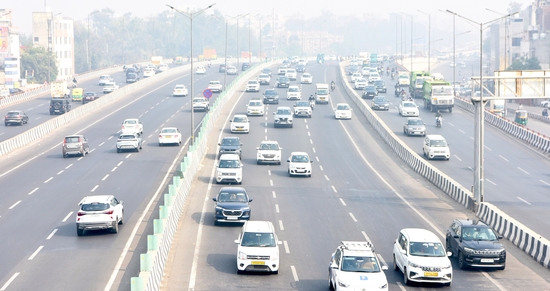Private entities can now use Aadhaar authentication
The Union government has amended the Aadhaar rules to allow private entities to use Aadhaar authentication for delivering their services
The Union government has amended the Aadhaar rules to allow private entities to use Aadhaar authentication for delivering their services, the ministry of electronics and IT (Meity) said in a statement on Friday, adding the amendments seek to promote “ease of living” to residents and enable “better access to services” to them.

The ministry on Friday notified Aadhaar Authentication for Good Governance (Social Welfare, Innovation, Knowledge) Amendment Rules, 2025, amending the 2020 rules.
“The amendment enables both government and non-government entities to avail Aadhaar authentication service… will help both the service providers as well as the service seekers to have trusted transactions,” the statement said.
The amendment will help people seamlessly avail the services of e-commerce, travel, tourism, hospitality, and health sector being provided by non-government entities as well, it added.
In the 2020 rules, the Centre could allow Aadhaar authentication only “in the interest of good governance, preventing leakage of public funds, promoting ease of living of residents and enabling better access to services for them” for three purposes: use of digital platforms to ensure good governance, to prevent dissipation of social welfare benefits, and to enable innovation and spread of knowledge.
Through the amendments, the phrase “in the interest of good governance, preventing leakage of public funds … access to services for them” has been deleted, while “promoting ease of living of residents and enabling better access to services for them” has been added as the fourth purpose, thereby expanding the scope of the reasons for authentication.
Prasanna S, advocate-on-record in the Supreme Court, who had challenged the constitutionality of Aadhaar, said the expansion was part of the “spectre of a surveillance state”, “unwarranted” and violative of the top court’s judgment that struck down Section 57 of the Aadhaar Act, 2016 to disallow private entities from using Aadhaar authentication services.
“The 2025 amendment to the Rules goes directly against the five-judge Supreme Court judgment in Puttaswamy v Union of India (2018). Section 57 of the Aadhaar Act, 2016 was struck down disallowing private entities from using Aadhaar authentication services. This amendment attempts to virtually re-legislate what was struck down,” he said.
The apex court’s “principal reasoning in striking down” Section 67 was its “concern that letting the government unduly expand the scope of Aadhaar use would lead to the spectre of a surveillance appearing”, Prasanna said. “This undue expansion is totally unwarranted.”
The amendments also detail the process that private entities have to follow to seek permission. To use Aadhaar authentication for the stated purposes, it will prepare a proposal specifying the purpose and “in the interest of State” and submit it to the concerned ministry, department, or appropriate government. If the ministry or department is satisfied with the proposal, it will send it to the central government to “make a reference” to the Unique Identification Authority of India (UIDAI).
The UIDAI will assess the proposal and make its recommendation to Meity, after which the entity — public or private — can be allowed to use Aadhaar for authentication.






